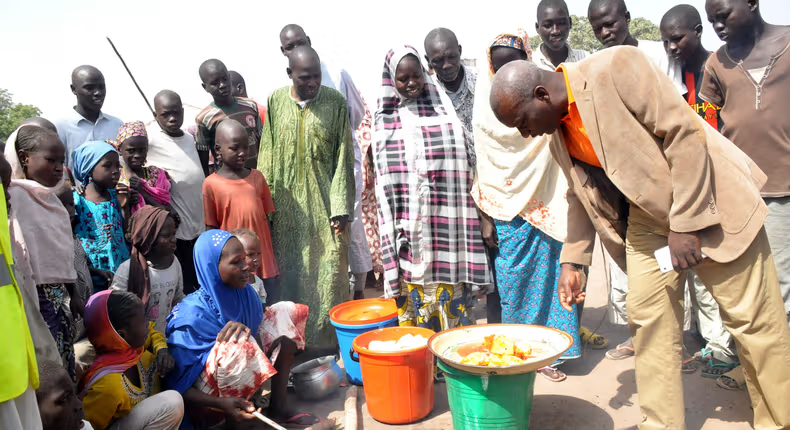The Coalition of Northern Groups (CNG) has expressed deep concern over the ongoing insecurity and socio-economic difficulties affecting the northern region of Nigeria, stating that many people are unable to afford even a single meal each day. This sentiment was shared during a recent community engagement held in Katsina, chaired by Professor Sani Abubakar Lugga, the fifth Wazirin Katsina.
The event, themed “Imperative of Popular Participation in Tackling Socio-economic Challenges Bedeviling Nigeria Through Community Solutions,” aimed to gather community input on addressing these pressing issues.
In a statement to reporters, CNG’s National Coordinator, Jamilu Aliyu Charanchi, emphasized the need for collective action, stating, “The North is walking with its two legs, hence the need to find a lasting solution.” He highlighted the severe economic conditions, mentioning, “People can no longer afford three square meals. We are not even talking about three square meals; people cannot afford a single square meal per day.”
Charanchi further pointed out that insecurity is rampant in the North and criticized leaders for their inaction. He stated, “The time of lamentation is over as virtually all Nigerians know that the country is bedeviled by serious problems.” He underscored that both leaders and communities must take responsibility to alleviate the current crises.
The CNG is mobilizing community members to participate in addressing issues such as insecurity, economic hardship, corruption, and deteriorating infrastructure in education and health sectors. Charanchi called for community leaders to return to their constituencies and relay the discussions from the engagement to foster local solutions.
He lamented the lack of genuine leadership in the country, contrasting politicians’ focus on winning elections with the need for leaders who prioritize future generations. “A true leader cares about how to secure the next generation,” he noted.
Charanchi’s remarks reflect a broader sentiment of frustration with the current political landscape, asserting that community unity and action are crucial for driving meaningful change. He concluded by urging communities to recognize their role in governance, stating, “Let’s get it right from our constituency.”

